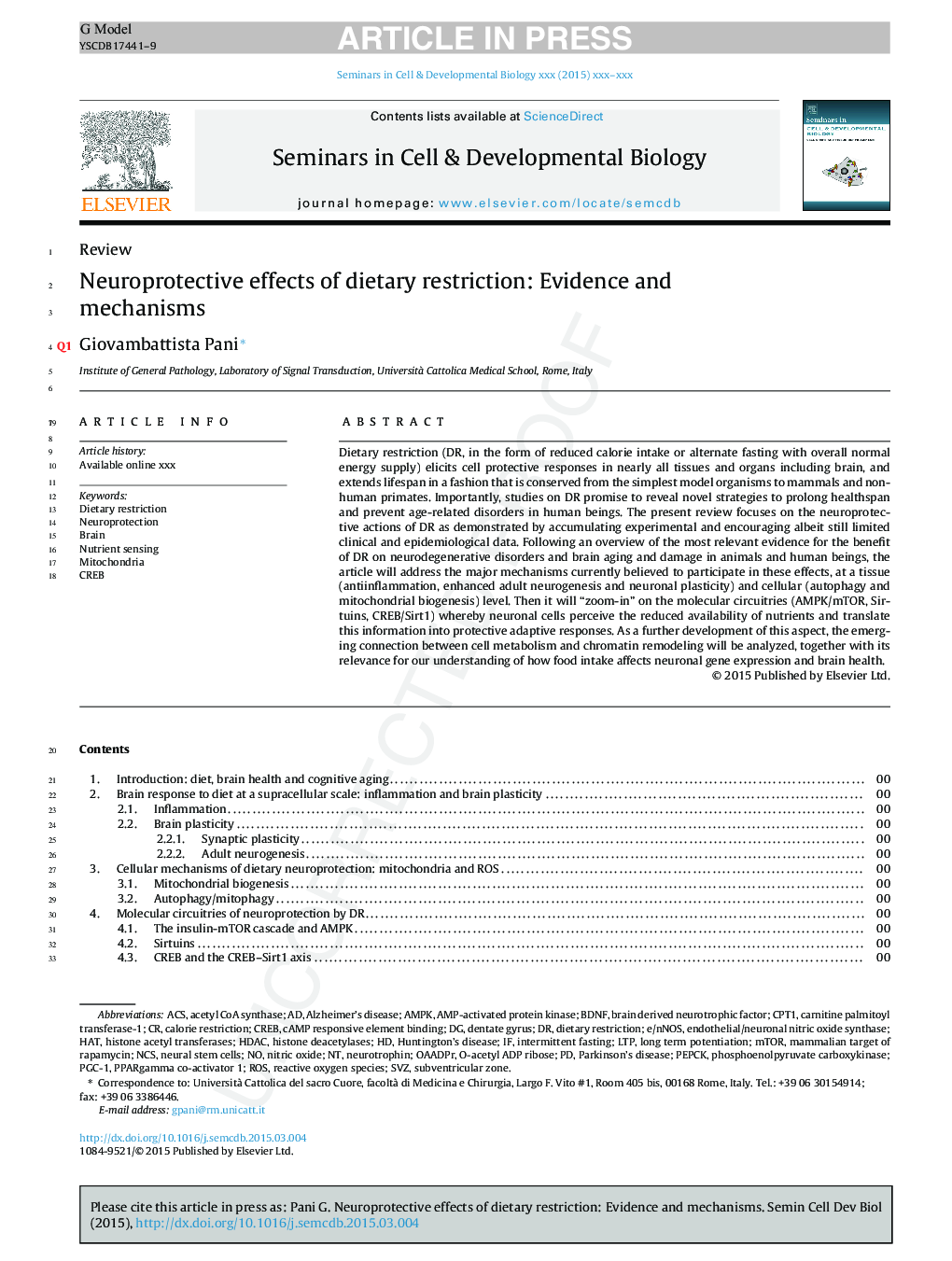| Article ID | Journal | Published Year | Pages | File Type |
|---|---|---|---|---|
| 8480460 | Seminars in Cell & Developmental Biology | 2015 | 9 Pages |
Abstract
Dietary restriction (DR, in the form of reduced calorie intake or alternate fasting with overall normal energy supply) elicits cell protective responses in nearly all tissues and organs including brain, and extends lifespan in a fashion that is conserved from the simplest model organisms to mammals and non-human primates. Importantly, studies on DR promise to reveal novel strategies to prolong healthspan and prevent age-related disorders in human beings. The present review focuses on the neuroprotective actions of DR as demonstrated by accumulating experimental and encouraging albeit still limited clinical and epidemiological data. Following an overview of the most relevant evidence for the benefit of DR on neurodegenerative disorders and brain aging and damage in animals and human beings, the article will address the major mechanisms currently believed to participate in these effects, at a tissue (antiinflammation, enhanced adult neurogenesis and neuronal plasticity) and cellular (autophagy and mitochondrial biogenesis) level. Then it will “zoom-in” on the molecular circuitries (AMPK/mTOR, Sirtuins, CREB/Sirt1) whereby neuronal cells perceive the reduced availability of nutrients and translate this information into protective adaptive responses. As a further development of this aspect, the emerging connection between cell metabolism and chromatin remodeling will be analyzed, together with its relevance for our understanding of how food intake affects neuronal gene expression and brain health.
Keywords
CREBcAMP responsive element bindingOAADPrPGC-1CPT1PEPCKSVZNCSHDACmTORACSAMPKAMP-activated protein kinaseBDNFROSAlzheimer's diseaseHuntington's diseaseParkinson's diseaselong term potentiationLTPNeural stem cellsNutrient sensingdentate gyrusbrain derived neurotrophic factorphosphoenolpyruvate carboxykinaseNeuroprotectiondietary restrictioncalorie restrictionBrainsubventricular zoneMitochondriaIntermittent fastingNeurotrophinNitric oxidemammalian target of rapamycinhistone deacetylasesHistone acetyl transferasescarnitine palmitoyl transferase-1HATReactive oxygen species
Related Topics
Life Sciences
Biochemistry, Genetics and Molecular Biology
Cell Biology
Authors
Giovambattista Pani,
